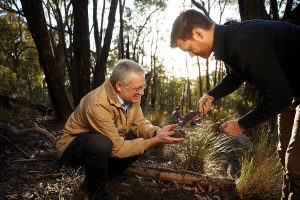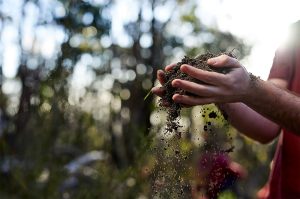
The more biodiverse the microbes living in the environments around us, and the more you are exposed to them, the healthier you may become. The Healthy Urban Microbiome Initiative (HUMI) is exploring how restoring microbial diversity in urban environments might improve the immune health of people in these areas by increasing the biodiversity of their microbiomes. HUMI is backed by the UN and their work could change our cities and make us healthier, on a global scale.
Recent work by the HUMI team has shown that restoration can bring back a biodiverse soil microbiome after about 6 to 14 years, even in urban landscapes (examples here, here and more to come soon).
This work is helping to develop what is knows as ‘restoration genomics‘. Work that is soon to be published shows that these soil microbiomes colonise people who are exposed to it, even for just a brief moment in time (e.g. <1 hour). When juvenile lab mice were exposed to just trace-levels of these soils, their microbiome becomes similar to the soil’s (see paper here).

Furthermore, the mice that were exposed to more biodiverse soil exhibited a reduced level of anxiety-like behaviour; closing the loop of evidence that has shown positive mental health benefits from interacting with more biodiverse environments.
Get in touch!
